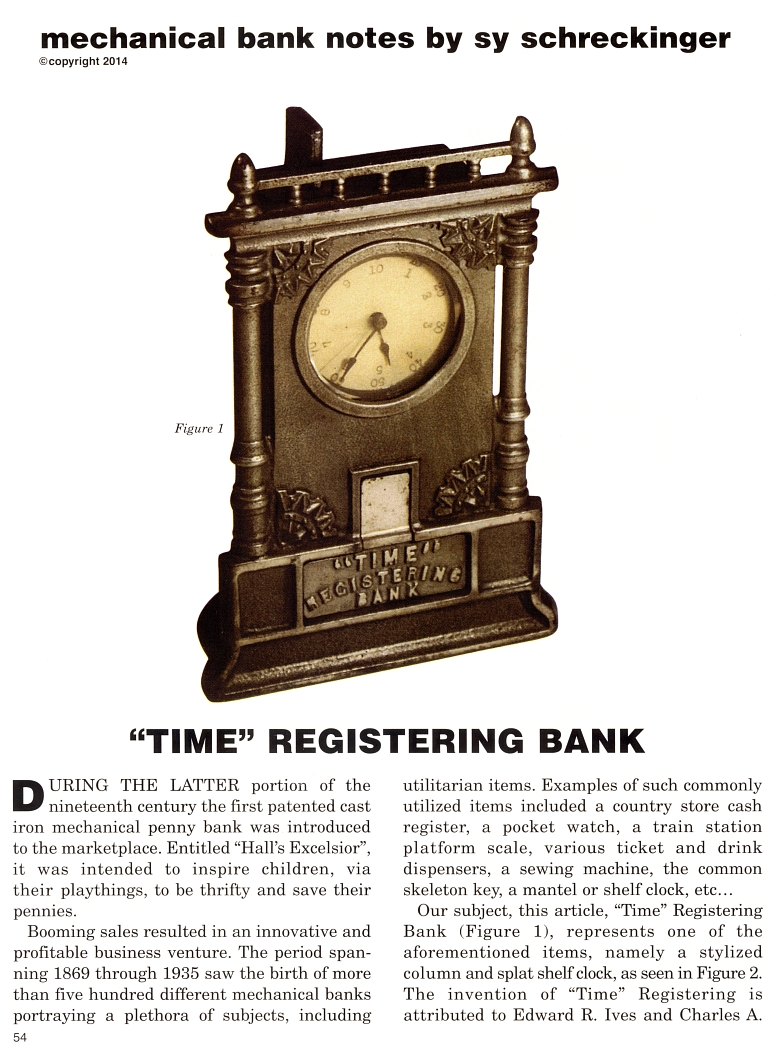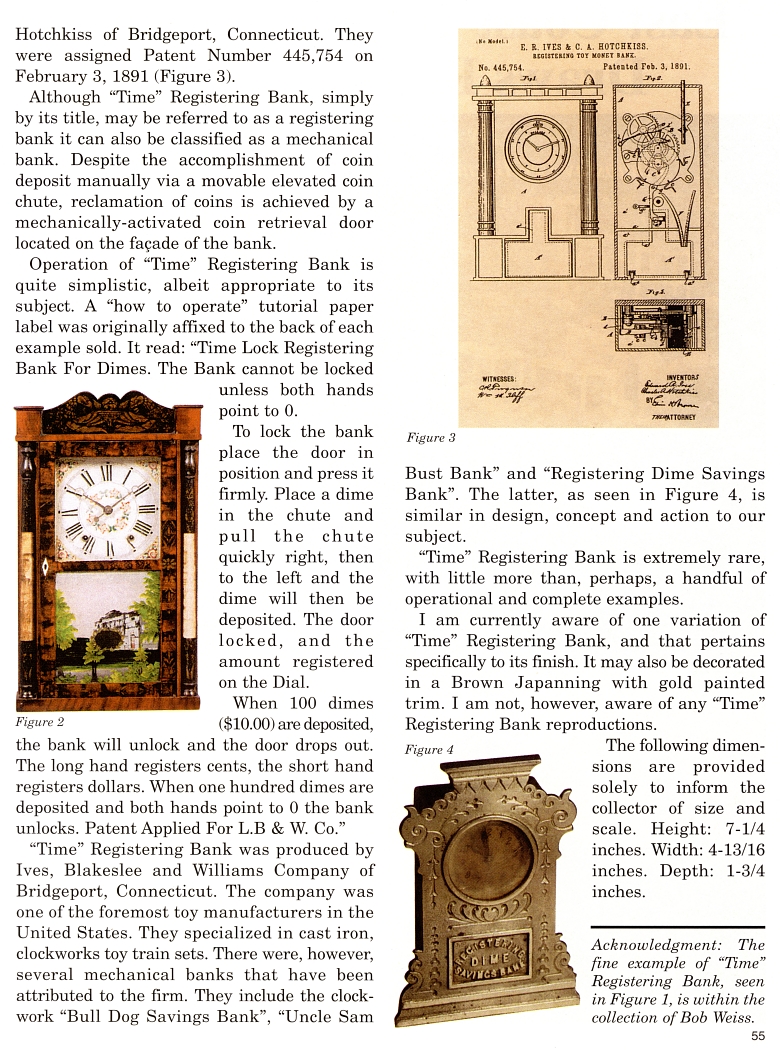|
"Time" Registering Bank
by Sy Schreckinger – ANTIQUE TOY WORLD Magazine – February, 2014
DURING THE LATTER portion of the nineteenth century the first patented
cast iron mechanical penny bank was introduced to the marketplace.
Entitled "Hall's Excelsior", it was intended to inspire children, via
their playthings, to be thrifty and save their pennies.
Booming sales resulted in an innovative and profitable business
venture. The period spanning 1869 through 1935 saw the birth of more
than five hundred different mechanical banks portraying a plethora of
subjects, including utilitarian items. Examples of such commonly
utilized items included a country store cash register, a pocket watch, a
train station platform scale, various ticket and drink dispensers, a
sewing machine, the common skeleton key, a mantel or shelf clock, etc...
Our subject, this article, "Time" Registering Bank (Figure 1),
represents one of the aforementioned items, namely a stylized column and
splat shelf clock, as seen in Figure 2. The invention of "Time"
Registering is attributed to Edward R. Ives and Charles A. Hotchkiss of
Bridgeport, Connecticut. They were assigned Patent Number 445,754 on
February 3, 1891 (Figure 3).
Although "Time" Registering Bank, simply by its title, may be
referred to as a registering bank it can also be classified as a
mechanical bank. Despite the accomplishment of coin deposit manually via
a movable elevated coin chute, reclamation of coins is achieved by a
mechanically-activated coin retrieval door located on the facade of the
bank.
Operation of "Time" Registering Bank is quite simplistic, albeit
appropriate to its subject. A "how to operate" tutorial paper label was
originally affixed to the back of each example sold. It read: "Time Lock
Registering Bank For Dimes. The Bank cannot be locked unless both hands
point to 0.
To lock the bank place the door in position and press it firmly.
Place a dime in the chute and pull the chute quickly right, then to the
left and the clime will then be deposited. The door locked, and the
amount registered on the Dial.
When 100 dimes Figure 2 ($10.00) are deposited, the bank will
unlock and the door drops out. The long hand registers cents, the short
hand registers dollars. When one hundred dimes are deposited and both
hands point to 0 the bank unlocks. Patent Applied For L.B & W. Co."
"Time" Registering Bank was produced by Ives, Blakeslee and
Williams Company of Bridgeport, Connecticut. The company was one of the
foremost toy manufacturers in the United States. They specialized in
cast iron, clockworks toy train sets. There were, however, several
mechanical banks that have been attributed to the firm. They include the
clockwork "Bull Dog Savings Bank", "Uncle Sam Bust Bank" and
"Registering Dime Savings Bank". The latter, as seen in Figure 4, is
similar in design, concept and action to our subject.
"Time" Registering Bank is extremely rare, with little more than,
perhaps, a handful of operational and complete examples.
I am currently aware of one variation of "Time" Registering Bank,
and that pertains specifically to its finish. It may also be decorated
in a Brown Japanning with gold painted trim. I am not, however, aware of
any "Time" Registering Bank reproductions.
The following dimensions are provided solely to inform the
collector of size and scale. Height: 7-1/4 inches. Width: 4-13/16
inches. Depth: 1-3/4 inches.
Acknowledgment: The fine example of "Time" Registering Bank, seen
in Figure 1, is within the collection of Bob Weiss. |


